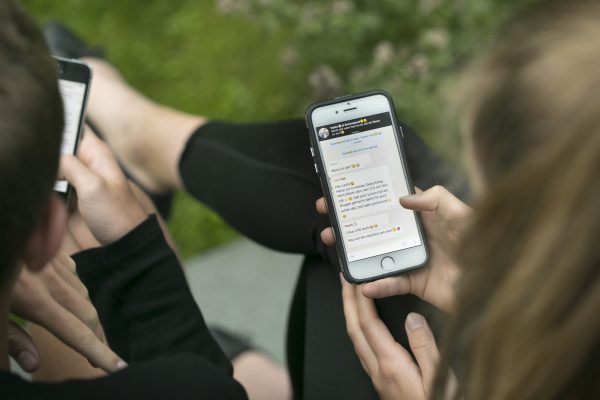Communication that takes place via messengers such as WhatsApp, Signal, Threema or Telegram is a basic need for young people. Trivial things are exchanged here, as well as opinions, organizational matters, videos and photos with peers. But it is also used to settle conflicts and test the effect of one’s own person on others. You don’t post on bulletin boards, but in a more or less personal chat with single or multiple people. People seem to communicate privately via Messenger. However, group chats can also be organized and individual users can be blocked. Often the groups are so large that there is no question of privacy. In addition, photos can be saved on other devices and forwarded unnoticed, for example.

Copyright: Ute Grabowsky/photothek.net
The popularity of messengers is simply due to the widespread use of the service. The apps are often free, and with an Internet flat rate or Wi-Fi access, there are no additional costs. Of course, they also entail risks. If you are concerned about the security of your data or that of your children, just compare the terms and conditions of individual messengers. What happens to the data there? Is the communication encrypted? Are there secure messengers? In the terms of use of many messengers, an age of 13 or even 16 is required for registration. If your child is younger, you must consent to its use.
Through the social web, there are also other numerous ways to participate in the world and stay in touch with others with little effort, such as Instagram and TikTok. Whereby young people do (and can) distinguish between the more public communication via platforms like Instagram and the more or less private exchange. With the smartphone, this happens at any time in any place and, above all, in very different ways.